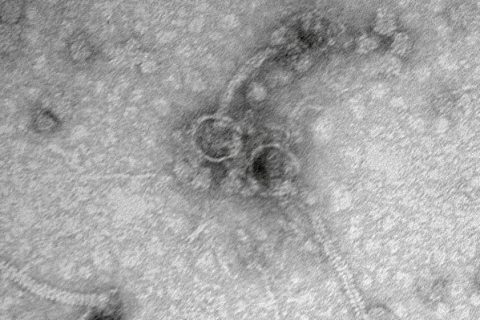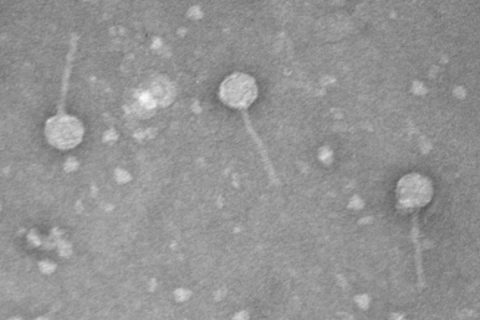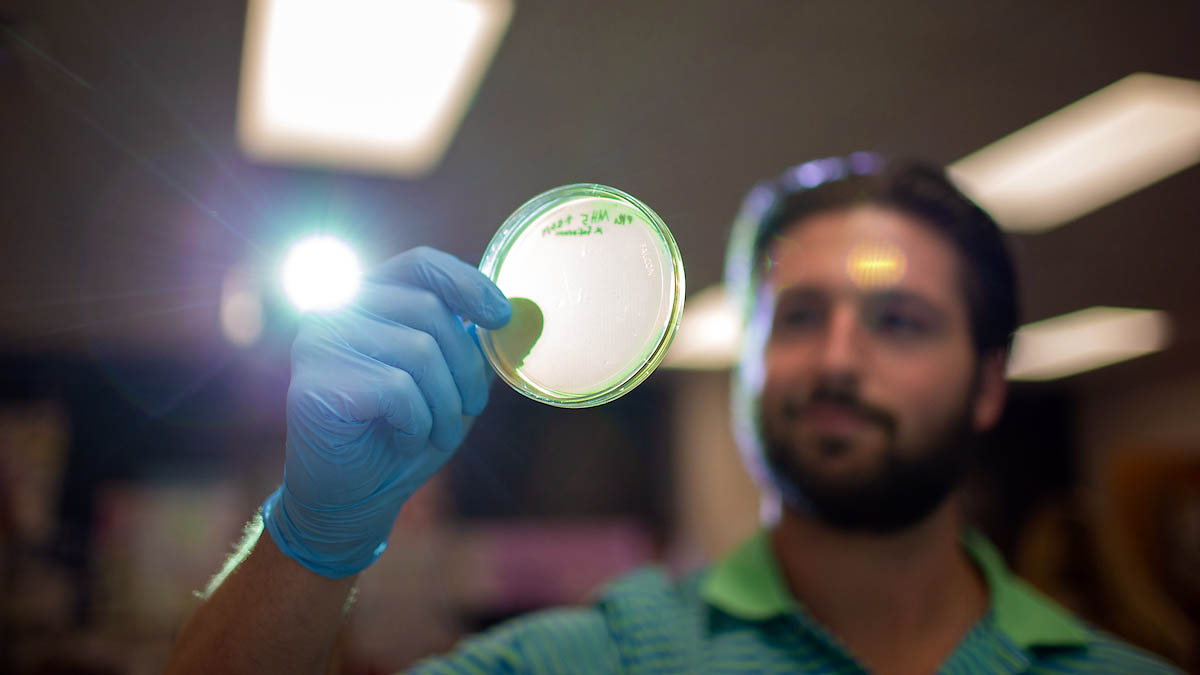 Clarksville, TN – Ten Austin Peay State University (APSU) students last semester took advantage of a unique global research opportunity, and their work led to the discovery of three new bacteria-infecting viruses called bacteriophages, aka phages.
Clarksville, TN – Ten Austin Peay State University (APSU) students last semester took advantage of a unique global research opportunity, and their work led to the discovery of three new bacteria-infecting viruses called bacteriophages, aka phages.

“My last semester students were very successful in finding new phages (and DNA isolation from them),” Austin Peay State University biology Professor Dr. Sergei Markov said. “Five DNA were sequenced and three out of the five are unique. We are annotating (analyzing) those DNA in my current class.”
This semester, seven students in Markov’s class have annotated the genomes of two of the phages and submitted them to the University of Pittsburg, the lead institution for the SEA-PHAGES program. The students are annotating the third phage’s genome now.
“The University of Pittsburg, after approval of our annotations, will submit them to GenBank,” Markov said.
As part of their research, the APSU students named their newly discovered phages and entered them into a global database. We thought it might be neat to ask the students how they picked their phage names.
Meet Austin Peay State University’s phages: Scumberland, Danno and Otwor.
Meet Danno

Student: Elizabeth Mason.
Why did you name your phage Danno?
“My favorite TV show is “Hawaii Five-0” and my favorite character is Danny, whose nickname is Danno. His character is very stubborn and hardheaded. We had a very hard time obtaining our phages and during the process I thought my phage was also being stubborn and hardheaded, so I related it back to that character.”
Where did you find Danno?
“On campus near the Marks building.”
Additional thoughts?
“Before I took Dr. Markov’s class, I was not very familiar with what a phage was. I am very fortunate to have had the opportunity to participate in the SEA-PHAGES program. To me, the phages program was a great opportunity to get hands-on experience in the microbiology field and it was a wonderful learning experience.”
Meet Otwor

Student: Cole Bell.
Why did you name your phage Otwor?
“The name is polish and it means hole. The reason I choose this is because my plaques were quite large compared to others in the class.”
Where did you find Otwor?
“I found my phage right in front of Claxton to the left of it. There are two windows and a drain from the gutter. I collected it about half a foot from the drain.”
Additional thoughts?
“Dr. Markov keeps me informed about every week. For me it was a great way to learn some techniques and actually submit something I worked on. Now, since it is in the database, maybe future work could be done with it.”
Meet Scumberland

Student: Heath Simpson
Why did you name your phage Scumberland?
“I wanted to come up with a name that had meaning and purpose behind it. I have been living in Clarksville for going on four years now and like many of us locals, I have come to call the Cumberland River the Scumberland River due to the large amount of natural and non-natural pollution that has continuously occurred from floods and companies over the past couple of decades.”
Where did you find Scumberland?
“I love to fish and kayak on the Cumberland River by myself, with my friends or with my wife. I knew exactly where I was going to obtain my environmental sample, an old fishing bank where the Red River meets the Cumberland River. In addition to the previous reasons, I chose this location because I knew this was a prime location for sewage dumpage. Generally speaking, bacteria love sewage, which is an ideal environment for promoting growth, also meaning it is an ideal environment to encourage bacteriophage growth.”
Additional thoughts?
“Local pollution and world pollution has continuously been unchecked and on the rise for decades. This negligence needs to be put in check immediately. We need to start giving back to the environment and significantly reduce the rate at which we have been destroying and taking advantage of all the resources that the Earth has provided us with.”
To learn more
- To read a much more in-depth account about the students’ efforts last semester and more about what phages are, click here.
- For more about Markov and the SEA-PHAGES classes he offers, go to https://seaphages.org/institution/APSU/.
- You can learn more about the students’ phages – including those not profiled here – at https://phagesdb.org/institutions/APSU/.
- For more about the Austin Peay State University Department of Biology, visit apsu.edu/biology/.
- For more about the SEA-PHAGES program, go to https://seaphages.org/.



